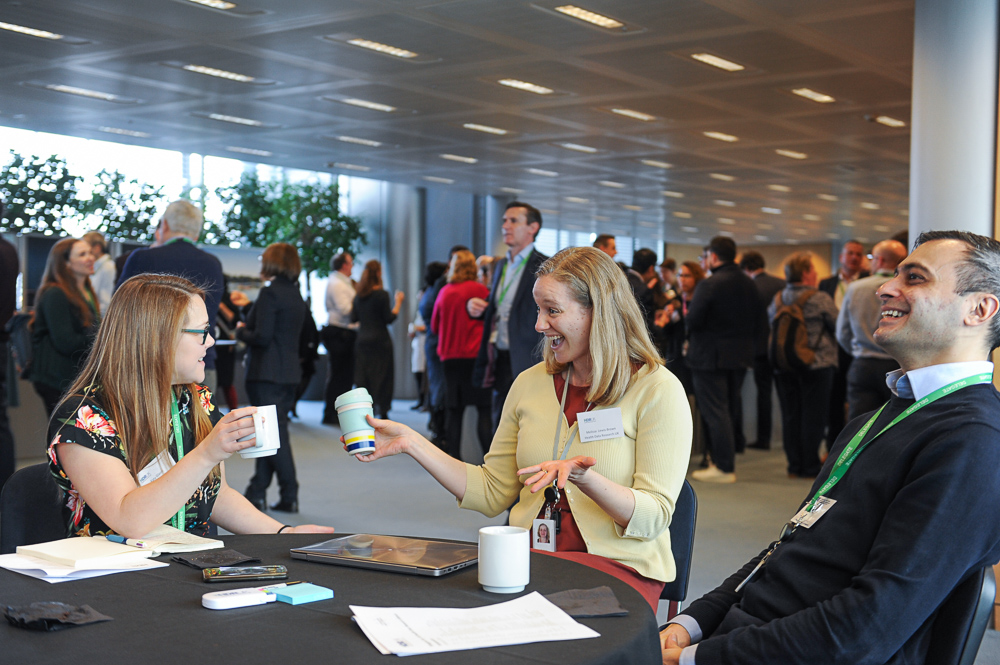CO-CONNECT: A layperson's perspective on using health data, building trust and the benefits of sharing
18 January 2022 | Author: Karen Mooney, Public Contributor
Karen Mooney, one of the Public and Patient Involvement team members for the CO-CONNECT project, guest-blogs on how getting closer to data has shifted her perspective.
“It is a very sad thing that nowadays there is so little useless information.” – Oscar Wilde
Information is valuable; it’s theft and misuse, a nightmare that we all fear these days. And yet so often, in this online world, we regularly sleepwalk into parting with information that can be used or even weaponised into targeted mail relating to our consumer preferences.
We become suspicious when more personal information is sought, and rightly so.
But what if some of our personal data could actually help save lives?
Information and the Pandemic
Given the pandemic we are experiencing, the quest for information and research has become a race against time. Dealing with an unknown enemy drove many to the internet, searching for knowledge that we hoped would protect us. Yet, so little was known in the early stages; many felt helpless. I know I did.
CO-CONNECT PROJECT
 I was invited to join the Patient and Public Involvement (PPI) team of CO-CONNECT, a multi-million-pound research project led by the University of Nottingham in partnership with Health Data Research UK. The project aims to help scientists across the UK access the data they need more efficiently to support the development of potential therapies and treatment for COVID-19.
I was invited to join the Patient and Public Involvement (PPI) team of CO-CONNECT, a multi-million-pound research project led by the University of Nottingham in partnership with Health Data Research UK. The project aims to help scientists across the UK access the data they need more efficiently to support the development of potential therapies and treatment for COVID-19.
But what data? It turns out that it was data from research using the blood serum results associated with COVID tests. The information can help inform how long immunity may last and if a vaccine will protect against emerging strains. The problem was that it was held by so many different sources, and given all the access approval processes that are rightly applicable, utilising the data for research is slow.
CO-CONNECT provides a gateway whereby the source data, along with our personal details, remains in the ownership of the organisation which collected it. However, to speed up access for research purposes, it is de-identified using a unique coding system enabling the blood serum results to be more readily accessible to trusted research environments.
Should I trust their approach?
The cynic in me wondered if it could be traced back to the individual. You see, I grew up in Northern Ireland in the whatever you say, say nothing days as basic information such as the school you attended could make you a target. The legacy of suspicion and mistrust voiced as “what do you want to know for?” remains. However, I have to say the PPI team members have been able to express many “what do you want to know for?” type questions, and to the credit of the project team, they have been patient in explaining their rationale every step of the way. Our team has access to all project workstreams; we are encouraged and invited to question or seek clarification on any topic and make suggestions, many of which have been taken on board. Any latent concern that our involvement may have been a tick box exercise has been eliminated by appointing a PPI Lead to chair regular meetings of all the partner organisations and the full engagement of the project’s Principal Investigators.
Concerns
My only frustration has been the information governance issues within the many partner organisations that have created a few roadblocks. To be honest, I never considered that blood test results would not have been held centrally in some NHS information systems. We have a tendency to think that the government has this big brother approach to keeping our information when in reality, the devolved administrations of our four nations have different systems. Democracy takes time.
Future Potential
My hopes for the future are that these gains are not lost once COVID-19 is on the wane. To witness the inspiring Formula One style collaborative approach of leading scientists and academics only leaves me wondering what other illnesses this infrastructure could be used for. The possibilities are endless. If we are to be led by science, we must equip our researchers with the tools and information to do their job. It is so often said that sharing is caring. It could also save lives.
Context
CO-CONNECT is a collaborative project led by the University of Nottingham in partnership with Health Data Research UK. Building upon the infrastructure provided by the Health Data Research Innovation Gateway and bringing together 44 different datasets that contain serology data from 19 organisations will allow researchers to request access to and analyse data from cohorts across several datasets.



